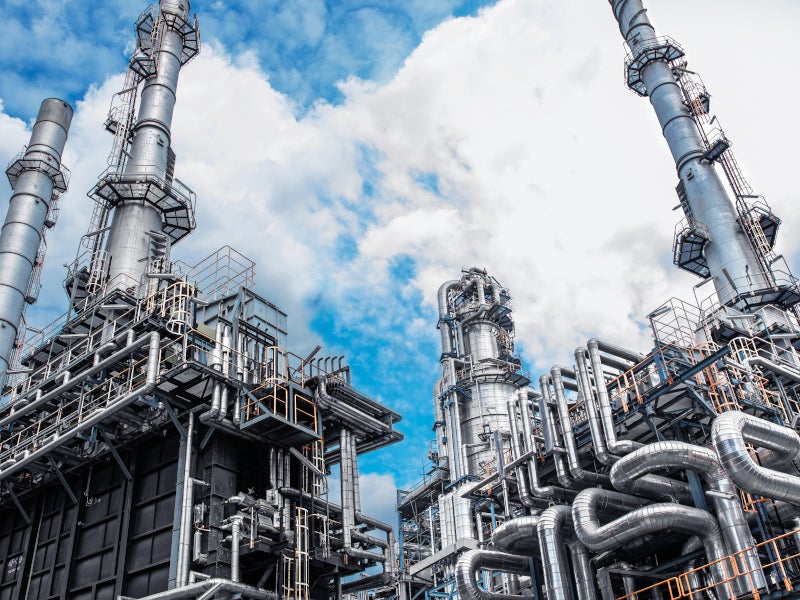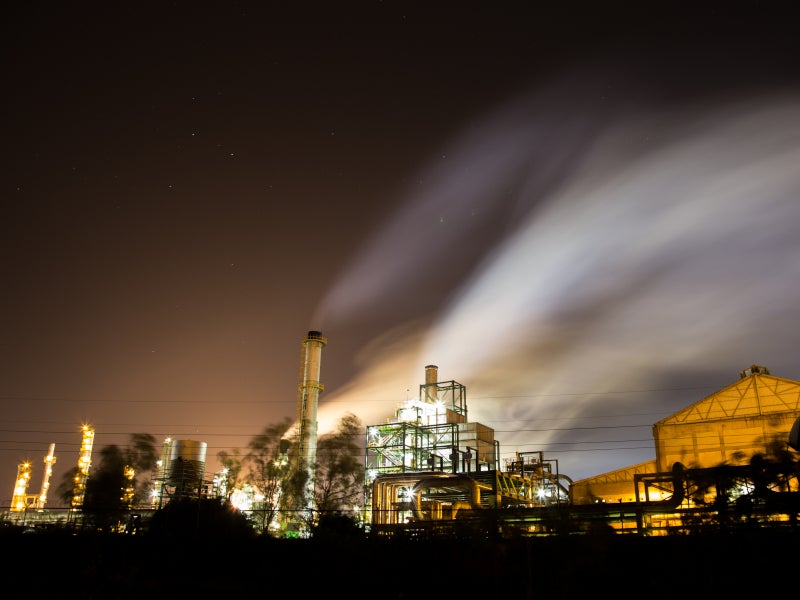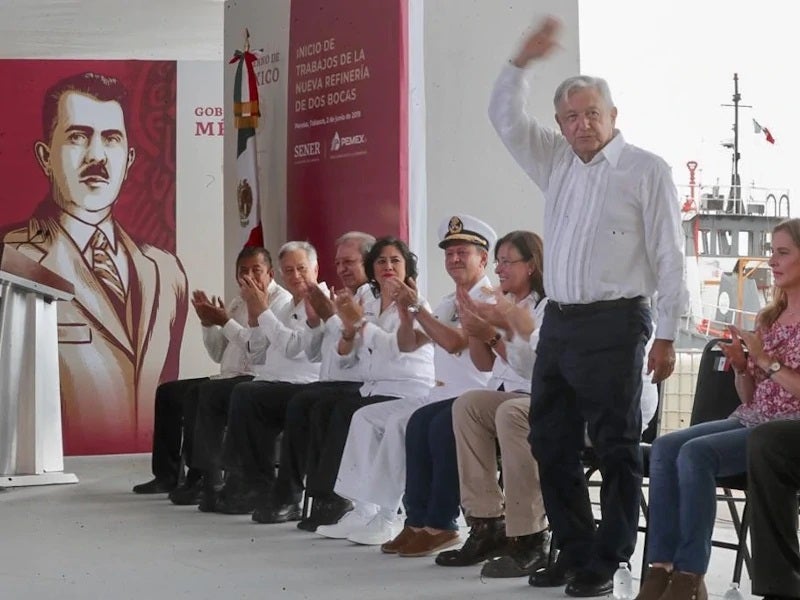The Dos Bocas refinery is a 340,000 barrels per day (bpd) oil refinery under-construction in Tabasco, Mexico. Capable of producing 170,000bpd of petrol and 120,000bpd of ultra-low sulphur diesel, it will be the biggest refinery in Mexico.
State-owned oil and gas company Petroleos Mexicanos (Pemex) will be the owner and operator of the refinery.
The site preparation work for the £6.5bn ($8bn) refinery project started in June 2019, while Mexico’s environmental regulator ASEA granted a construction permit in August 2019.
Scheduled to commence commercial production in 2022, the Dos Bocas refinery project is being developed as part of Mexico’s National Refining Plan of December 2018 that aims at reducing its reliance on fuel imports from the US.
Location and site details
The refinery facility is being developed on a 566ha-site near Dos Bocas maritime terminal, in the Paraíso municipality of Tabasco, in southeast Mexico.
Processing infrastructure
The Dos Bocas refinery is proposed to include 17 processing units including a combined distillation plant, a delayed coking unit, a fluid catalytic cracker unit, a naphtha hydrotreating unit, a naphtha reforming unit, a sulphur recovery plant, a gas recovery and treatment facility, as well as a hydrogen-producing plant.
The delayed coking unit will convert the residue from the combined distillation plant into higher-value products, while the fluid catalytic cracker unit will use catalysts to break large distillation fractions into lighter products. The hydrotreating unit will remove sulphur, nitrogen and some aromatic compounds from the distillation fractions.
Work packages for the Dos Bocas refinery project
The engineering and construction work for the refinery is divided into six packages. The contractors for five work packages including packages 1-4 and package-8 with a combined value of £6bn ($7.5bn) were selected in July 2019.
The contracts for package-5 which includes the building of storage facilities are expected to be awarded in 2020.
The package-1 which is estimated to cost £1.37bn ($1.7bn) involves the construction distillation and coking plant facilities, while the £1.45bn ($1.79bn) package-2 includes a diesel hydro desulphurisation (DHDT) unit, a gasoil hydro desulphurisation (HDS) unit, a naphtha hydro-treating (NHT) unit and a naphtha reformer.
The fluid catalytic cracking (FCC) unit is included in package-3 which involves an estimated investment of £1.14bn ($1.41bn).
The £284m ($351.4m) package-4 includes the sulphur recovery plant, the gas recovery and treatment plant, and the hydrogen-producing plant, while the £1.48bn ($1.84bn) package-6 involves refinery integration services.
Financing
China’s state-owned Bank of China and the Industrial and Commercial Bank of China (ICBC) are providing £461.4m ($600m) in financing for the construction of Dos Bocas refinery.
Contractors involved
ICA Fluor, a joint venture between the Mexican engineering and construction company ICA and the US-based engineering and construction company Fluor, received the contract for work package-1 of the refinery project.
Samsung Engineering in partnership with Mexico-based Asociados Constructores DBMR was awarded the contract for Packages 2 and 3.
KBR and Mexico-based Constructora Hostotipaquillo jointly bagged the contracts for packages 4 and 6.
Mexicana de Recipientes a Presión, which specialises in making metallic structures, is working with KBR and Constructora Hostotipaquillo, on work package-6 of the refinery project.
Van Oord, a marine contractor based on the Netherlands, in consortium with Mexico-based Grupo Huerta Madre received a contract worth £207.6m ($262.5m) for land reclamation works for the Dos Bocas refinery site in June 2019. The scope of the contract included the creation of 600ha of new land, 400ha of dynamic compaction and 6 million m3 of dry earth movement.
Mexico’s National Refining Plan
The National Refining Plan calls for the rehabilitation of six existing Pemex-operated refineries as well as a new refinery in Dos Bocas, in order to reduce Mexico’s dependency on fuel imports.
The six existing refineries at Cadereyta, Madero, Minatitlán, Salamanca, Salina Cruz and Tula processed 611,900bpd of crude oil in 2018.
The National Refining Plan targets a total of 1.8 million barrels per day (Mbpd) of crude processing capacity at the seven refineries including the Dos Bocas refinery, by 2022. The refineries are intended to produce a total of 781,000bpd of petrol and 560,000bpd of diesel.





